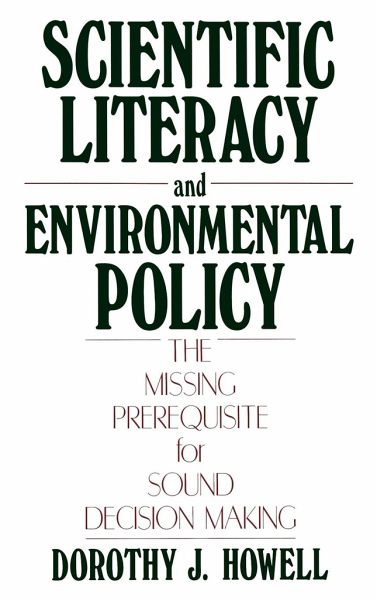
Scientific Literacy and Environmental Policy
The Missing Prerequisite for Sound Decision Making
Versandkostenfrei!
Versandfertig in 1-2 Wochen
69,99 €
inkl. MwSt.

PAYBACK Punkte
35 °P sammeln!
National institutions involved in environmental policy planning respond more to the accommodation of special interests, whether vested, parochial, or societal, than to the realities of technological advances. This situation, combined with the added problem of widespread scientific illiteracy, makes the formulation of effective environmental policy a very difficult task to accomplish. Our politico-legal system and relationships among science, scientists, and society are explored here with specific attention to issues arising from pharmaceutical innovation and biotechnology. The identification o...
National institutions involved in environmental policy planning respond more to the accommodation of special interests, whether vested, parochial, or societal, than to the realities of technological advances. This situation, combined with the added problem of widespread scientific illiteracy, makes the formulation of effective environmental policy a very difficult task to accomplish. Our politico-legal system and relationships among science, scientists, and society are explored here with specific attention to issues arising from pharmaceutical innovation and biotechnology. The identification of the resultant dilemmas reveal disenfranchisement and point to possible means of reform. Howell focuses on the need for multilateral responsibility for communication to improve the accommodation of science in policy. A truly multidisciplinary study, this book is for environmental planners as well as the interested public.














